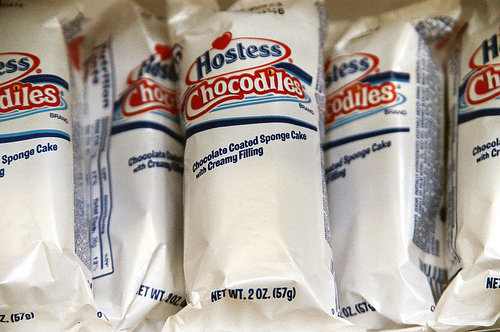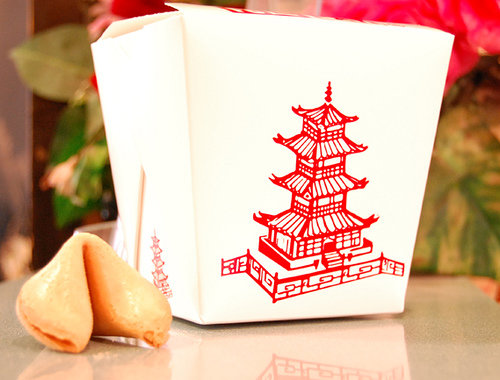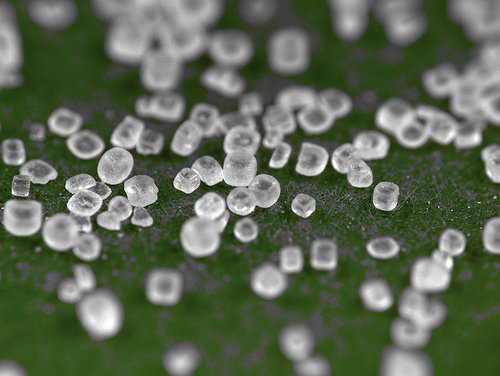

We all know that some foods are healthier for us than others, and that some foods are just plain bad for us. But did you know there are some individual ingredients you need to avoid? Here’s a list of the ten ingredients to avoid in your food…
 Photo Credit: Ikayama
Photo Credit: Ikayama
The jury is still out on whether or not HFCS contributes to obesity, but studies have shown that obesity rates in the U.S. have increased since the 1980’s along with our consumption of HFCS. Regardless of what scientists decide, it’s plain enough — we consume far too much sugar and HFCS, so we ought to be careful of both. That's one way toavoid obesity.
 Photo Credit: moonpies for misfits
Photo Credit: moonpies for misfits
Partially hydrogenated oils are, in short, trans fats, which are so unhealthy they’ve actually been banned in some part of the U.S. Trans fats are so bad for your heart that you shouldn’t just “avoid” them, you should cut them out of your diet altogether! Do it for the sake of ahealthy heart.
 Photo Credit: Lisa Chu Photography
Photo Credit: Lisa Chu Photography
You may have noticed Chinese take-out menus declaring that they are “MSG-Free.” Why is this a big deal? MSG is often used to boost the flavor in foods, so “real” ingredients can be used in smaller quantities, thus making food cheaper. While it hasn’t been proven to be harmful, some people who consume it report that it makes them jittery, causes insomnia and nausea. If you try it and it makes you ill, then avoid it in the future.
 Photo Credit: (Erik)
Photo Credit: (Erik)
Caffeine appears in most coffees, teas, and even chocolates. But did you know that it’s addictive, and can lead to short-term health problems, like sleeplessness, jittery nerves, and even interfere with the absorption of calcium? It’s also been linked to an increase in miscarriages. Consume caffeine in moderation if you can and avoid it altogether if you’re pregnant.
 Photo Credit: kevindooley
Photo Credit: kevindooley
We only need 500 mg of sodium each day to survive, but we Americans get far more than that. Too much sodium can lead to hypertension and heart disease. Sodium is used to preserve canned and packaged foods, so avoid them and you’ll ingest far less sodium. In short, stay away from Chef Boyardee and the likes!
 Photo Credit: ricko
Photo Credit: ricko
Sodium nitrate is used to keep preserved meats looking pink and delicious. Unfortunately, it’s been linked to a higher risk of cancer. Check your ham, bacon,beefand sausage products to make sure they don’t contain nitrates, which aren’t really necessary, now that we have freezing and refrigeration.
 Photo Credit: only alice
Photo Credit: only alice
As far as I’m concerned, if lab tests have shown these food colorings to cause cancer in rats, then it’s not fit for human consumption. The FDA considers these to be safe, but even the chance that these particular colorings could cause cancer is enough reason for me to avoid them.
 Photo Credit: bookgrl
Photo Credit: bookgrl
These two are very widely used artificial sweeteners (Equal, NutraSweet, and Sweet N Low), and both have been linked, in numerous studies, to an increased risk of cancer. The results aren’t inconclusive: these products have been linked directly to cancer. Avoid them if possible, and certainly don’t give them to children!
 Photo Credit: Carlos Porto
Photo Credit: Carlos Porto
BHA is a chemical antioxidant often used in chips and crisps, but lab studies have shown a link to it and cancer in rats. It’s controversial because the cancers occur in a part of the rat and mouse biology we humans don’t have. I avoid it anyway. Better to be safe than sorry right?
 Photo Credit: Newly born
Photo Credit: Newly born
Olestra is a fat substitute, one that’s not absorbed into the body. It was invented by Proctor and Gamble, and is used in their Pringles and Lay’s “light” chips. While this sounds like a miracle, consider what happens to something that’s not absorbed during digestion. That’s right — it passes right through your system, causing diarrhea, cramps, and flatulence, sometimes severe. Ick! I’d suggest avoiding Olestra and choosing baked crisps, instead.
Now that you know what you have to avoid, pay attention to the ingredients label when you’re at the grocery store. What food ingredient do you avoid, and why? Please let me know, so I can look out for it too!
Top Photo Credit: Buxmama